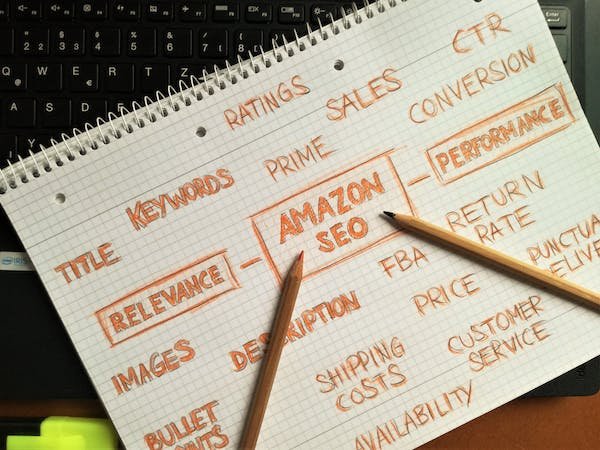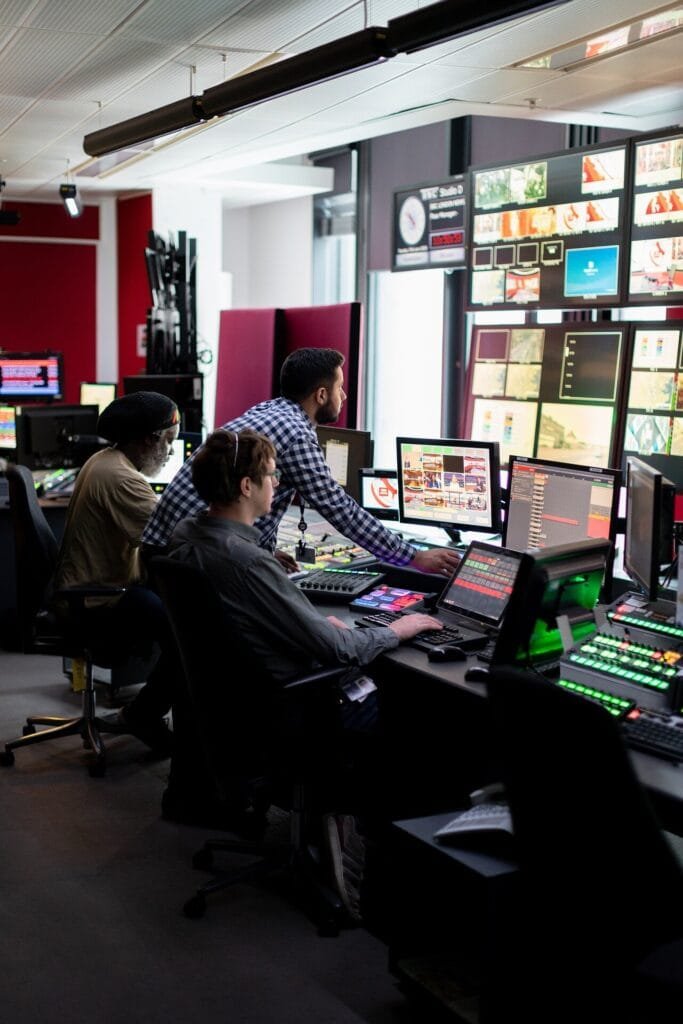In the dynamic world of technology, events such as conferences and meetups serve as critical hubs for networking, learning, and showcasing innovations. With the digital realm becoming increasingly crowded, how do you ensure that your tech event stands out and attracts the right audience? Enter Local SEO. By optimizing your event for local search, you can significantly increase visibility and drive organic traffic. This article offers a deep dive into strategies and tips to leverage Local SEO effectively for tech events.
Understanding the Power of Local SEO

While the essence of Local SEO focuses on capturing the immediate geographical vicinity, its strategic implementation can extend your event’s visibility far beyond local boundaries. This nuanced approach requires a deeper understanding of how Local SEO can serve as a powerful conduit for not just attracting local attendees, but also for spotlighting your event on a national or even global scale. The key lies in the integration of local elements with broader SEO tactics, ensuring your tech event gains attention from a wider audience while maintaining its relevance to local searchers.
What Makes Local SEO Different?
Local searches have a specific geographical component. Users are often looking for a service or event “near me” or in a specific locale. By optimizing for these searches, you can ensure that your tech event pops up in these crucial moments of intent.
Why is Local SEO Crucial for Tech Events?
- Targeted Audience: Local SEO brings in attendees who are geographically close and more likely to attend.
- Cost-Effective: Unlike paid ads, local SEO strategies can offer sustained visibility without continuous investment.
- High Conversion Rates: Users searching for local tech events are often ready-to-engage, leading to higher conversion rates.
Leveraging Local SEO for Wider Audience Attraction
The foundational step in leveraging Local SEO for attracting a wider audience is to understand that local search optimization does not confine your event to a geographical leash. Instead, it can act as a beacon, drawing in a targeted audience from various locations by highlighting the unique value and opportunities your tech event presents. This involves a strategic layering of local optimization techniques with broader SEO strategies, such as content marketing and link-building, aimed at a wider audience.
Crafting Content with a Dual Focus
Creating content that resonates with both local and non-local audiences requires a delicate balance. Your content should emphasize the local aspects of your tech event—such as the significance of its location, local tech industry trends, and local speakers or sponsors—while also discussing broader themes that appeal to a wider audience. This dual focus not only reinforces the local relevance of your event but also positions it as a must-attend gathering for anyone in the tech industry, regardless of their location.
Strategic Use of Social Media and Online Platforms
Social media platforms and online forums offer an unparalleled opportunity to amplify your tech event’s reach beyond local confines. By engaging in tech-related discussions, leveraging hashtags that are both locally focused and widely used in the tech community, and sharing content that highlights the universal appeal of your event, you can attract attention from both local and distant prospects. This strategy hinges on the ability to create compelling, shareable content that encourages interaction and spreads organically across networks.
Utilizing Local Partnerships to Boost National Interest
Forming partnerships with local businesses, tech influencers, and educational institutions can serve as a catalyst for attracting a broader audience. These local entities often have their own networks that extend far beyond the local area. By collaborating on promotional efforts, hosting joint webinars or workshops in the lead-up to the event, or featuring local partners in your marketing materials, you can tap into these wider networks. This not only enriches the local SEO value of your tech event but also elevates its profile on a national scale.
The Role of Analytics in Refining Your Approach
To truly harness the power of Local SEO in attracting a more extensive audience, ongoing analysis and refinement of your strategies are crucial. Utilize analytics tools to track the geographical origins of your website traffic, engagement rates on social media, and the performance of your content across different platforms. This data will provide invaluable insights into how well your Local SEO efforts are resonating with both local and broader audiences, allowing you to make informed adjustments. Continuously optimizing your approach based on these insights will ensure that your tech event not only captures the local market but also attracts attention from across the country or around the globe.
The Strategic Advantage of Local SEO
In summary, expanding on the power of Local SEO requires looking beyond its immediate geographical benefits. By strategically combining local optimization with broader SEO tactics, engaging content, and smart partnerships, your tech event can attract a diverse audience that spans far beyond your local area. This approach not only enhances the visibility and appeal of your tech event but also establishes it as a pivotal gathering within the tech community at large, ensuring sustained interest and participation from a wide range of attendees.
Keyword Research for Tech Events
Understanding your audience’s search behavior is a cornerstone of effective keyword research for tech events. This approach transcends basic keyword identification, delving into the psyche of your potential attendees to uncover the specific terms, questions, and phrases they use when searching for events like yours. By aligning your keyword strategy with audience insight, you can craft an SEO approach that not only targets the right keywords but speaks directly to the needs and interests of your audience.
Tools to Get Started
- Google’s Keyword Planner: A free tool that offers insights into search volume and competition.
- SEMrush: This paid tool can provide localized keyword suggestions based on real search queries.
Crafting the Perfect Keyword List
- Combine Generic with Local: Pair generic terms like “tech conference” or “developers meetup” with city or venue names.
- Consider User Intent: Focus on keywords indicating a strong intention to attend, such as “upcoming tech events in [City].”
Utilizing Audience Personas for Targeted Keywords
Developing detailed audience personas is a strategic method to refine your keyword research. These personas, built from demographic and psychographic data, help you understand the motivations, challenges, and information-seeking behaviors of your potential attendees. By analyzing these personas, you can identify niche keywords that directly address the interests and needs of your specific audience segments. For example, a persona representing startup founders might frequently search for networking opportunities, leading you to incorporate keywords like “startup networking events” or “tech entrepreneur meetups” into your SEO strategy.
Analyzing Competitor Keyword Strategies
Gaining an edge in the competitive landscape of tech events requires more than just knowing your audience; it also involves understanding your competitors. Analyzing the keyword strategies of successful events similar to yours can unveil gaps in your own strategy or highlight new opportunities for differentiation. Tools like Ahrefs or SEMrush offer competitor analysis features that reveal the keywords your competitors are targeting, their ranking positions, and the content that performs best for them. This analysis not only inspires new keyword ideas but also helps you identify areas where you can outperform competitors by targeting underserved niches or offering more valuable content.
The Role of Long-Tail Keywords in Event SEO
In the realm of tech events, where competition for basic terms can be fierce, long-tail keywords present an opportunity to connect with a more targeted audience. These longer, more specific phrases often have lower search volumes but signify a higher intent to attend or engage with tech events. By incorporating long-tail keywords into your SEO strategy, you can capture the attention of attendees who are in the later stages of the decision-making process, potentially leading to higher conversion rates. Phrases like “blockchain developer conference in [City] [Year]” or “AI innovation meetup for startups” target specific interests and can drive more qualified traffic to your event pages.
Integrating Keywords into a Content Strategy
Once your keyword research is aligned with audience insights, competitor analysis, and long-tail opportunities, the next step is integrating these keywords into a holistic content strategy. This involves creating content that not only ranks well in search engines but also provides real value to your target audience. For tech events, this could include detailed blog posts about the themes of your event, interviews with speakers, or articles that tackle current trends in the tech industry related to your event’s focus. Each piece of content should be optimized for both search engines and user engagement, with keywords seamlessly woven into titles, headings, and body text to maintain readability and relevance.
Tracking and Adapting Your Keyword Strategy
The digital landscape is ever-evolving, and so are the ways people search for tech events. Regularly tracking the performance of your keywords and the changing interests of your audience is essential for keeping your SEO strategy effective. Use tools like Google Analytics and Google Search Console to monitor which keywords are driving traffic and conversions, and be prepared to adapt your strategy in response to shifting trends and search behaviors. This ongoing process ensures that your tech event remains visible and appealing to your target audience, driving sustained interest and registrations.
A Dynamic Approach to Keyword Research
Expanding your keyword research for tech events with these strategic considerations ensures that your SEO efforts are both comprehensive and targeted. By deeply understanding your audience, analyzing the competitive landscape, leveraging long-tail keywords, and continuously adapting your strategy, you can create a powerful SEO foundation that attracts more attendees, engages them with valuable content, and ultimately drives the success of your tech event.
On-Page SEO Optimization for Tech Events

In the realm of promoting tech events, on-page SEO is not just about sprinkling keywords throughout your content. It’s a meticulous process that involves optimizing every element of your event page to ensure maximum visibility and engagement. By employing advanced on-page SEO techniques, you can significantly enhance the discoverability and attractiveness of your tech event to both search engines and potential attendees.
Title Tags and Meta Descriptions
These play a pivotal role in SERPs (Search Engine Results Pages), acting as a user’s first interaction with your event.
- Include City and Date: “Tech Innovators Conference – [City], [Date]” can be an impactful title.
- Use Action Words in Meta Descriptions: Encourage clicks by using compelling verbs like “Discover,” “Join,” or “Explore.”
URL Structure
URLs are not just for search engines; they’re for humans too. Keep them clear and descriptive.
- Use Local Identifiers: e.g., “www.yoursite.com/events/[city]-tech-conference-2023“.
- Keep URLs Short and Descriptive: Avoid lengthy URLs with unnecessary information.
Content Optimization
Your event description, details, and content should be both engaging and SEO-friendly.
- Incorporate Keywords Naturally: Ensure that your content reads smoothly, integrating keywords where they make sense.
- Use Headers Effectively: Break your content using H2, H3, and H4 tags for better readability and SEO.
Local Schema Markup
Schema markup provides search engines with more information about your event, ensuring it’s displayed attractively in SERPs.
- Event Details: Use event schema to highlight key details like date, location, and price.
- Speakers and Agenda: Provide structured data about keynote speakers or the event schedule.
Maximizing User Engagement Through Page Structure
The structure of your event page plays a crucial role in keeping potential attendees engaged and encouraging them to take action. A well-organized page with a clear hierarchy not only aids in SEO but also improves user experience. Start with a compelling headline that clearly states the value of your event, followed by a subheadline that offers more detail. Use short paragraphs and bullet points to break up text, making it easy to scan. Include a variety of multimedia elements such as images, videos, and infographics to enrich the content and keep users engaged. A logical flow from introduction to detailed information, culminating in a clear call-to-action, will guide visitors through your page and encourage them to register.
Enhancing Visibility with Image Optimization
Images play a vital role in making your event page visually appealing and engaging. However, beyond aesthetics, they offer an opportunity to boost your page’s SEO. Ensure all images on your event page are optimized for fast loading without sacrificing quality. Use descriptive file names and alt attributes that include relevant keywords and provide context to search engines about the content of the images. This not only helps with image search rankings but also improves the overall SEO of your page.
Improving Readability with Semantic HTML
Semantic HTML involves using HTML tags to convey the meaning and structure of your content to search engines more effectively. Tags like <header>, <footer>, <nav>, and <article> help search engines understand the structure of your page, while <h1> through <h6> tags indicate the hierarchy of your content. Use these tags strategically to structure your content, making sure the <h1> tag is reserved for your main title. This clarity not only aids search engines in indexing your content but also improves accessibility for users, enhancing the overall user experience.
Leveraging Internal Linking to Boost Discoverability
Internal linking is a powerful on-page SEO strategy that involves linking to other pages on your website from your event page. This can significantly boost the SEO of your entire site by making it easier for search engines to crawl and index your pages. Link to relevant blog posts, speaker bios, and other event-related pages to keep users engaged and encourage them to explore more of your site. Use descriptive anchor text that gives users and search engines an idea of what they’ll find on the linked page.
Optimizing for Local Intent with NAP Consistency
For tech events, optimizing for local intent involves ensuring your Name, Address, and Phone number (NAP) are consistent across your website and all online listings. This consistency helps search engines verify your event’s location, which can boost your visibility in local search results. Ensure your event’s venue and contact information are prominently displayed and match the details found on your Google My Business listing and other event directories.
The Art of On-Page SEO for Tech Events
Advanced on-page SEO is an art that combines technical optimization with creative content presentation to enhance both visibility and user engagement. By focusing on page structure, image optimization, semantic HTML, internal linking, and local intent, you can create an event page that not only ranks well in search results but also captivates and converts potential attendees. In the competitive landscape of tech events, these strategic on-page optimizations can be the difference between a well-attended event and one that fails to capture interest.
Building Local Backlinks
Securing local backlinks is a pivotal element in enhancing your tech event’s online visibility and credibility. Beyond the conventional approaches, a comprehensive local backlink strategy involves a nuanced understanding of your event’s ecosystem and leveraging relationships and content to earn high-quality backlinks. This strategy not only boosts your Local SEO efforts but also strengthens your event’s reputation within the local tech community.
Partner with Local Influencers and Blogs
- Guest Posts: Offer to write articles or event previews for local tech blogs.
- Interviews: Arrange interviews or Q&A sessions with keynote speakers or organizers on local platforms.
Local Directories and Event Sites
- Event Listing: Sites like Meetup.com, Eventbrite, or local event directories can be valuable.
- Local Business Directories: Ensure your event or organizing entity is listed on directories like Yelp, YellowPages, or local equivalents.
Encourage Reviews and Testimonials
Positive reviews on platforms like Google My Business can enhance credibility and visibility.
- Feedback from Past Attendees: If this isn’t the first edition of your event, showcase testimonials from previous participants.
- Engage with Reviews: Respond to feedback, both positive and negative, showcasing active engagement.
Fostering Community Engagement for Backlink Opportunities
Community engagement stands at the heart of building meaningful local backlinks. By actively participating in and contributing to local tech communities, you open avenues for organic backlink generation. Engage with local tech forums, attend community events, and offer valuable insights or resources that address the community’s needs. This proactive involvement not only positions your event as an integral part of the local tech ecosystem but also encourages community members and organizations to naturally link back to your event as a valuable resource.
Collaborating with Local Academic Institutions
Local universities, colleges, and educational institutions are hubs of innovation and learning in the tech field. Collaborating with these institutions for workshops, seminars, or guest lectures can lead to valuable backlink opportunities from reputable academic websites. Such collaborations can be mutually beneficial, offering real-world insights and networking opportunities for students while enhancing the visibility and credibility of your tech event. Ensure to create content that reflects these collaborations, such as press releases or blog posts, which can be shared on academic websites and social media channels.
Leveraging Local News Outlets and Tech Publications
Local news outlets and specialized tech publications are always on the lookout for compelling stories and events to cover. Pitching your tech event as a news story or expert article can lead to features that include backlinks to your event page. Craft your pitches to highlight the unique aspects of your event, such as groundbreaking topics, notable speakers, or community impact. This not only secures backlinks from authoritative sources but also puts your event in front of a wider audience.
Creating Shareable Local Content
Content that resonates with the local tech community is inherently shareable and can attract backlinks from various sources. Develop content that addresses local tech challenges, opportunities, or trends, incorporating insights from local experts or case studies from previous events. By making this content available to local tech blogs, forums, and news outlets, you encourage sharing and linking, significantly boosting your local backlink profile.
Hosting and Promoting Local Meetups or Workshops
While your main focus might be promoting a larger tech event, hosting smaller local meetups or workshops can serve as an excellent strategy for building backlinks. These smaller events provide opportunities for local tech enthusiasts to connect, learn, and share their experiences. Promote these meetups through local event listings, tech groups, and social media, ensuring that every promotional piece includes a link back to your main event page. This not only strengthens your backlink profile but also builds momentum and interest leading up to your larger event.
A Multifaceted Approach to Building Local Backlinks
Building local backlinks for your tech event requires a multifaceted approach that goes beyond traditional link-building tactics. By fostering community engagement, collaborating with academic institutions, leveraging local media, creating shareable content, and hosting related events, you can develop a robust backlink strategy. This comprehensive approach not only improves your event’s Local SEO but also deepens its roots in the local tech community, enhancing visibility, credibility, and attendee engagement.

Related: Check out our free SEO suite

Creating Localized Content
Creating localized content is much more than simply mentioning the city where your tech event will take place. It involves weaving the fabric of the local tech community into your content strategy, thereby ensuring your event speaks directly to the interests, challenges, and aspirations of local tech enthusiasts. This strategic approach to content creation not only enhances your event’s relevance and appeal but also strengthens your connections within the local ecosystem, fostering a sense of community and anticipation around your event.
Blogging about the Tech Event
- Speaker Interviews: Spotlight your keynote speakers, their expertise, and what attendees can expect from their sessions.
- Behind-the-scenes: Give readers a sneak peek into the preparation and excitement leading up to the event.
- Local Relevance: Discuss how the event will address tech challenges or opportunities specific to the locale.
Utilizing Video Content
- Promo Videos: Share teasers or trailers that capture the essence of the upcoming event.
- Testimonials: Use feedback from past events or early bird attendees to generate interest.
- Local Landmarks: Incorporate recognizable local landmarks or culture to cement the local relevance.
Infographics and Visual Assets
- Event Schedule: Design a visually appealing event timetable.
- Speaker Highlights: Create short bio infographics for main speakers.
Capturing the Local Tech Pulse
To truly resonate with the local audience, your content must reflect an understanding of the local tech scene’s current state and trajectory. This requires staying abreast of local tech news, trends, and discussions. Engage with local tech news outlets, follow local tech leaders on social media, and participate in local tech forums and groups. Use these insights to create content that addresses local issues, celebrates local successes, or offers solutions to local challenges. By positioning your event as a catalyst for local tech advancement, you enhance its perceived value and relevance.
Showcasing Local Tech Talent and Stories
A powerful way to create localized content is by showcasing local tech talent and stories. Interview local tech entrepreneurs, spotlight innovative local startups, and share success stories from the local ecosystem. This not only provides valuable content for your audience but also builds goodwill and relationships within the local tech community. It turns your event platform into a stage for local voices, demonstrating your commitment to supporting and elevating the local tech scene.
Leveraging Local Culture and Identity
Every locale has its own unique culture and identity that can be reflected in your event content. Whether it’s the city’s history of innovation, its unique challenges, or its cultural landmarks, integrating these elements into your content can create a deeper connection with your local audience. Share how your event aligns with or contributes to the local cultural narrative. This approach not only makes your content more engaging and relatable but also strengthens the local community’s sense of pride and ownership in your event.
Collaborating with Local Partners for Content Creation
Collaborating with local businesses, educational institutions, and tech hubs can provide a wealth of content opportunities. These partnerships allow you to tap into their networks and resources for content creation, from co-authored articles and guest blog posts to joint webinars and podcasts. Such collaborations not only diversify your content but also amplify your reach through shared audiences. It’s a strategic way to create a buzz around your event while embedding it within the local tech ecosystem.
Interactive Local Content Experiences
Engaging your audience with interactive content experiences can significantly enhance the local appeal of your tech event. Consider developing local tech quizzes, interactive maps of tech hotspots, or augmented reality experiences that highlight local tech landmarks or event venues. Interactive content not only grabs attention but also encourages shares and discussions, increasing your event’s visibility and engagement within the local community.
A Strategic Foundation for Localized Content
Creating localized content for your tech event is a strategic endeavor that requires a deep understanding of the local tech ecosystem, a commitment to showcasing local talent and stories, and an appreciation of the local culture and identity. By capturing the local tech pulse, leveraging local culture, collaborating with local partners, and offering interactive content experiences, you can create a content strategy that not only attracts but also deeply resonates with your local audience. This approach not only positions your event as a key player in the local tech scene but also builds a strong, engaged community around your brand, ensuring the long-term success and growth of your tech events.
Leveraging Social Media for Local Reach

Social media stands as a formidable pillar in extending the local reach of your tech event, engaging potential attendees where they spend a significant portion of their online time. However, leveraging social media for local reach involves more than just posting about your event. It requires a strategic, interactive, and community-focused approach that not only increases visibility but also fosters a sense of belonging and excitement around your event.
Geo-targeted Ad Campaigns
Platforms like Facebook and LinkedIn allow you to target ads based on specific geographic areas.
- Local Promotions: Run ad campaigns targeting your city or surrounding areas.
- Custom Audiences: Use past attendee data to create custom audiences and “lookalike” audiences to extend your reach.
Engaging with Local Groups and Forums
- Local Tech Groups: Join and participate in discussions in city-specific tech groups on platforms like Facebook or LinkedIn.
- Event Listings: Share your event on community boards or platforms like Nextdoor.
Harnessing Local Hashtags
- City-specific Hashtags: For example, if you’re hosting in San Francisco, use tags like #SanFranciscoTech or #SFTechEvents.
- Event-specific Hashtags: Create a unique hashtag for your event and encourage speakers, sponsors, and attendees to use it.
Engaging Local Communities with Tailored Content
Creating content that resonates with your local tech community is key to leveraging social media effectively. This involves understanding the local tech landscape and the interests of your target audience. Share content that addresses local tech developments, challenges, and achievements. Incorporate stories or testimonials from past events that highlight the impact and value of your gatherings. By tailoring your content to reflect the local tech scene, you engage your audience in a meaningful way, encouraging shares, likes, and comments that enhance your event’s visibility.
Strategic Partnerships for Enhanced Social Reach
Partnering with local tech influencers, businesses, and other event organizers can significantly amplify your event’s presence on social media. Identify potential partners who share your target audience and have a strong social media presence. Collaborate on joint promotions, live sessions, or content exchanges. These partnerships not only expand your reach but also lend credibility to your event, as endorsements from well-respected figures or entities in the local tech community can be incredibly persuasive.
Utilizing Social Media Events and Groups
Maximize the features offered by social media platforms by creating event pages and groups dedicated to your tech event. These digital spaces serve as hubs for potential attendees to gather, share information, and engage with your content. Update these pages regularly with engaging content, behind-the-scenes looks, and live Q&A sessions to keep the momentum going. Encourage discussions and interactions among members to build a community atmosphere that can translate into higher attendance rates.
Hyper-Localized Social Media Advertising
While organic reach is important, paid social media advertising allows you to precisely target your local audience. Use hyper-local targeting options to reach potential attendees based on their location, interests, and behavior. Platforms like Facebook and Instagram offer advanced targeting tools that let you focus on users within specific geographic areas, making your ads highly relevant to the local tech community. Experiment with different ad formats and messaging to see what resonates best with your target audience, and use these insights to refine your strategy.
Monitoring and Engaging in Real-Time
Social media is a dynamic and fast-paced environment where real-time engagement can significantly impact your event’s success. Monitor mentions, comments, and messages related to your event, responding promptly to inquiries and engaging in conversations. This not only helps in building relationships with potential attendees but also allows you to address any concerns or questions in real time, providing a level of service and engagement that can set your event apart.
A Community-Centric Approach to Social Media
Leveraging social media for local reach requires a strategy that goes beyond broadcasting messages—it’s about creating a dialogue and building a community. By engaging local communities with tailored content, forging strategic partnerships, utilizing social media events and groups, employing hyper-localized advertising, and maintaining real-time engagement, you can significantly enhance the local visibility and appeal of your tech event. This community-centric approach not only drives attendance but also establishes a solid foundation for future events, positioning your tech gatherings as integral components of the local tech ecosystem.
Mobile Optimization: Ensuring Seamless Access

In an era where mobile devices dominate internet access, optimizing your tech event’s online presence for mobile is not just a recommendation—it’s imperative. However, mobile optimization extends beyond making your site responsive. It involves creating a seamless, intuitive, and engaging mobile user experience that not only attracts potential attendees but also supports their journey from discovery to attendance. This comprehensive approach to mobile optimization requires strategic planning, execution, and continuous refinement.
Responsive Design
- Easy Navigation: Ensure users can access event details, schedules, and registration without hassle.
- Load Time: Optimize images and scripts to ensure rapid load times.
Mobile Local Searches
- Click-to-Call: Incorporate a direct call button for queries or registrations.
- Map Integration: Embed maps with venue details, ensuring attendees can locate the venue without switching apps.
Prioritizing Speed and Performance
The cornerstone of a successful mobile experience is speed. Mobile users expect quick access to information, especially when searching for and engaging with tech events. Optimize your website’s speed by compressing images, leveraging browser caching, and minimizing code. Tools like Google’s PageSpeed Insights can provide actionable recommendations to improve performance. A fast-loading site not only enhances user experience but also positively impacts your search engine rankings, making your event more discoverable to local attendees.
Designing for Mobile User Behavior
Understanding and designing for mobile user behavior is critical to creating an effective mobile experience. This means considering thumb-friendly navigation, ensuring key information about your tech event is easily accessible, and implementing a mobile-first design approach. Simplify your site’s navigation to make it easy for mobile users to find what they’re looking for, whether it’s event details, registration forms, or speaker information. Additionally, incorporate touch-optimized elements such as swipeable image galleries or expandable event schedules to enhance engagement.
Integrating Local Mobile Features
To capitalize on the local nature of your tech event, integrate mobile features that cater to the needs of local users. This includes click-to-call functionality for easy contact, map integration with step-by-step directions to your event venue, and location-based services that offer personalized content or recommendations. These features not only make it easier for local attendees to engage with your event but also improve the overall mobile experience, encouraging on-the-go interactions and conversions.
Ensuring Content Readability and Accessibility
On mobile devices, readability and accessibility are paramount. Ensure that your content is easily readable on small screens by using large, legible fonts and adequate spacing between lines and elements. Implementing accessible design principles, such as high-contrast colors for text and background and alt text for images, also ensures that your tech event’s mobile site is inclusive to all users. Remember, an accessible site not only broadens your audience but also reflects positively on your event’s brand.
Leveraging Mobile Analytics for Continuous Improvement
To ensure your mobile optimization efforts are effective, leverage mobile analytics to track user behavior, engagement, and conversion rates. Tools like Google Analytics offer insights into how mobile users interact with your site, which pages they visit most, and where they drop off. Use this data to continuously refine your mobile site, enhancing features that work well and improving or removing those that don’t. Regular analysis and updates based on user feedback and analytics data are crucial to maintaining a superior mobile experience.
A Comprehensive Mobile Strategy for Tech Events
Mobile optimization for tech events goes beyond basic responsiveness. It involves a strategic approach to speed and performance, user behavior, local features, readability, and continuous improvement based on analytics. By prioritizing a comprehensive mobile strategy, tech event organizers can ensure that their event is not only discoverable to a local audience but also provides a seamless and engaging experience that converts interest into attendance. In the competitive landscape of tech events, a superior mobile experience can be a significant differentiator, driving success and fostering a loyal attendee base.
Optimizing for Voice Search
As voice search continues to grow in popularity, optimizing your tech event for voice search becomes increasingly important. This new frontier of SEO offers a unique set of challenges and opportunities for event organizers aiming to capture the attention of potential attendees using voice-activated devices. A strategic approach to voice search optimization can ensure your event stands out in this evolving search landscape, making it easily discoverable through spoken queries.
Understanding Voice Search Behavior
- Natural Language: Users often pose questions in a conversational manner. E.g., “What tech events are happening in Boston this summer?”
- Immediate Needs: Voice search users often seek immediate answers, like directions to a venue or event start time.
Tips for Voice Search Optimization
- FAQs: Create an FAQ section addressing common queries potential attendees might voice-ask.
- Local Content: Ensure the city or location name is frequently yet naturally mentioned in the content.
- Schema Markup: As with traditional search, structured data can help search engines understand and prioritize your content for voice queries.
Understanding the Nuances of Voice Search Queries
Voice search queries tend to be more conversational and longer than text-based searches. Users often phrase their searches in the form of questions or complete sentences, such as “What are the top tech events happening in New York this year?” To optimize for voice search, incorporate natural language into your content, including question-based phrases that potential attendees are likely to use. Conduct research to identify common questions related to your event and integrate these into your website’s content, especially in FAQ sections, blog posts, and event descriptions.
Localizing Voice Search Content
Since many voice searches are local in nature, emphasizing the local aspects of your tech event is crucial for voice search optimization. Ensure your content explicitly mentions the city, landmarks, and other local identifiers related to your event. Create content that answers location-based queries, such as “Where is the nearest tech meetup happening?” or “Directions to [Event Name] in [City].” Incorporating structured data markup on your website can also help search engines understand the local relevance of your event, improving its visibility in voice search results.
Optimizing for “Near Me” Voice Searches
“Near me” searches are prevalent among voice search users looking for events and services in their vicinity. To capitalize on this trend, make sure your tech event is listed on local directories and event calendars, and your website is optimized with local SEO best practices. This includes having a consistent NAP (Name, Address, Phone number) across all listings, and embedding Google Maps on your contact page. These steps enhance your event’s chances of appearing in “near me” voice search results, making it easier for local attendees to discover your event.
Enhancing Your Site’s Mobile-Friendliness for Voice Search
With the majority of voice searches occurring on mobile devices, ensuring your website is mobile-friendly is essential for voice search optimization. A mobile-responsive design, fast loading times, and easy-to-navigate pages all contribute to a positive user experience for voice search users. Since voice search devices often pull answers from featured snippets or the top results, improving your overall mobile site performance can also increase your chances of securing these coveted spots.
Engaging in Conversational Marketing
Voice search optimization extends beyond your website to how you engage with potential attendees on social media and other platforms. Adopt a conversational tone in your marketing efforts, and consider using chatbots or voice-activated assistants to answer queries about your event. This approach not only aligns with the natural language processing of voice search but also provides an immediate, interactive way for potential attendees to engage with your event.
Embracing Voice Search as a Strategic Asset
Optimizing for voice search is a forward-looking strategy that positions your tech event at the forefront of search technology. By understanding and adapting to the conversational nature of voice queries, localizing content, optimizing for “near me” searches, ensuring mobile-friendliness, and engaging in conversational marketing, you can enhance your event’s visibility and accessibility through voice search. This comprehensive approach to voice search optimization ensures that your tech event not only meets the current demands of potential attendees but also anticipates future trends in search behavior.
Engaging with Attendees Post-Event

Engaging with attendees after a tech event is not merely a follow-up activity; it’s an opportunity to cultivate lasting relationships, gather valuable insights, and lay the groundwork for future events. This post-event engagement strategy can transform attendees into loyal advocates for your brand and active participants in your community. By implementing a strategic approach to post-event engagement, you can maximize the impact of your event long after it concludes.
Post-Event Blogs
- Event Recap: A detailed overview of the event’s highlights, major announcements, or standout sessions.
- Interviews: Post-event reactions from attendees, speakers, or sponsors.
Encourage Reviews
- Direct Appeals: Request attendees to leave reviews on Google My Business, Yelp, or industry-specific platforms.
- Incentives: Offer discounts for future events or exclusive content in exchange for feedback.
Photo and Video Shares
- Event Gallery: Create a dedicated section on your website for event photos and videos.
- User-generated Content: Encourage attendees to share their captures, tagging your event or using your event hashtag.
Personalized Thank You Communications
Sending personalized thank you messages to attendees shortly after the event can make a lasting impression. Tailor these communications to reflect their participation or interest areas during the event. For instance, reference specific sessions they attended or topics they showed interest in. This personal touch demonstrates your appreciation and attention to detail, enhancing their connection to your brand.
Sharing Event Highlights and Resources
Keep the momentum of your event going by sharing highlights, resources, and content generated during the event. This can include session recordings, keynote speeches, presentation slides, and event photos. Make this content easily accessible on your website and social media platforms, and encourage attendees to share their favorites. By doing so, you not only provide value to attendees but also extend the reach of your event to those who couldn’t attend.
Gathering and Acting on Feedback
Soliciting feedback is a crucial step in engaging with attendees post-event. Use surveys or feedback forms to gather attendees’ thoughts on what worked well and what could be improved. This feedback is invaluable for refining future events and shows attendees that their opinions are valued. Act on this feedback and communicate the changes you plan to implement, reinforcing the idea that their input directly influences the event experience.
Fostering Community Through Social Media
After the event, continue to engage with attendees on social media. Encourage them to share their experiences, learnings, and photos using the event hashtag. Create a dedicated group or forum where attendees can continue discussions, share insights, and network. This ongoing engagement helps build a vibrant community around your event, keeping attendees connected and engaged until your next event.
Offering Exclusive Opportunities and Content
To maintain engagement and interest in your brand, offer attendees exclusive access to additional content, future event discounts, or early-bird registration opportunities. You can also provide them with first access to new research, e-books, or webinars related to the event topics. These exclusives not only reward attendees for their participation but also keep them connected to your brand and looking forward to future interactions.
Hosting Reunion Events or Follow-up Webinars
Consider hosting smaller reunion events or follow-up webinars that delve deeper into topics covered during your main event. These gatherings can help sustain the community’s engagement, provide additional value, and keep the conversation going. They also offer an opportunity to reconnect with attendees, reinforce relationships, and gather more feedback for continuous improvement.
Transforming Engagement into Community
Engaging with attendees post-event is a strategic process that extends the lifecycle of your tech event and turns transient interactions into lasting relationships. By personalizing communications, sharing valuable content, gathering and acting on feedback, fostering community, offering exclusives, and hosting follow-up events, you can keep attendees invested in your brand. This approach not only enhances the attendee experience but also builds a loyal community eager to participate in your future tech events, ensuring long-term success and growth.
Measuring Your Local SEO Efforts
The effectiveness of your Local SEO strategy for promoting tech events is not just about increasing visibility—it’s about understanding and enhancing the journey of your potential attendees from discovery to conversion. By measuring specific metrics, you can gain insights into the impact of your SEO efforts and identify opportunities for optimization. This section delves into a strategic approach to measuring your Local SEO performance, ensuring that every effort contributes to the overarching goal of driving attendance and engagement.
Key Metrics to Monitor
- Organic Traffic: Track the number of visitors landing on your event page via search engines.
- Local Search Queries: Utilize Google Search Console to understand local search queries driving traffic.
- Conversion Rates: Monitor the number of visitors turning into registered attendees.
Tools for Local SEO Analysis
- Google Analytics: Provides comprehensive insights into website traffic, user behavior, and conversions.
- Moz Local: Offers a snapshot of your local online presence, highlighting areas for improvement.
Analyzing Search Visibility and Engagement
Begin by assessing your event’s search visibility for targeted local keywords. Track your rankings in search results for these keywords and monitor changes over time. Tools like Google Search Console can provide valuable data on your visibility in search results, including impressions, clicks, and click-through rates (CTR). These metrics offer a direct view of how effectively your content captures the attention of potential attendees in search results.
Beyond visibility, engagement metrics such as average session duration and pages per session on your event website can indicate the quality of traffic driven by your SEO efforts. High engagement levels suggest that visitors find your content relevant and valuable, a key indicator of the effectiveness of your keyword strategy and content quality.
Assessing Conversion Performance
Conversions are the ultimate measure of your Local SEO success. Define clear conversion goals, such as event registrations, newsletter sign-ups, or inquiry submissions. Utilize conversion tracking in Google Analytics to measure the number of conversions attributed to organic search traffic. Analyzing conversion rates from visitors to registrants provides critical insight into how well your website content and user experience facilitate the decision-making process for potential attendees.
Evaluating Local Listing and Backlink Impact
Local listings and backlinks play a vital role in Local SEO. Monitor your presence and accuracy across local directories and review sites using tools like Moz Local. Consistency in your NAP (Name, Address, Phone number) information and positive reviews can significantly enhance your local search presence.
Backlinks from reputable local sources not only bolster your SEO but also reflect the credibility and authority of your event. Use backlink analysis tools to track the quantity and quality of backlinks, focusing on those from local businesses, tech communities, and event directories. The impact of these backlinks on your search rankings and traffic can highlight opportunities for further outreach and partnership development.
Monitoring Voice Search and Mobile Usability Metrics
With the rise of voice search and mobile usage, tracking performance in these areas becomes crucial. For voice search, analyze query data from Google Search Console to identify common questions and conversational phrases leading to your site. Optimizing for these queries can improve your visibility in voice search results.
Mobile usability metrics, such as mobile page load times and mobile bounce rates, are critical for assessing the effectiveness of your mobile optimization efforts. Tools like Google’s Mobile-Friendly Test and PageSpeed Insights can help you identify and rectify issues that could hinder the mobile user experience, ensuring your site remains accessible and engaging for mobile users.
Leveraging Post-Event Data for Continuous Improvement
After the event, gather data on attendee satisfaction and engagement through surveys, social media interactions, and website analytics. This post-event feedback offers invaluable insights into the strengths and areas for improvement in your Local SEO and overall event promotion strategy. Analyze patterns in the data to understand what attracted attendees, what content was most engaging, and how attendees discovered your event. These insights can guide the refinement of future SEO strategies, ensuring continuous improvement in your approach to promoting tech events.
A Cycle of Strategic Insights
Measuring the success of your Local SEO efforts is a continuous cycle of strategic planning, execution, measurement, and refinement. By focusing on search visibility, engagement, conversion performance, local listing accuracy, backlink quality, voice search optimization, and mobile usability, you can develop a comprehensive understanding of your Local SEO performance. Leveraging these insights allows for targeted optimizations that not only enhance the visibility and appeal of your tech events but also build a solid foundation for sustained growth and success in the competitive landscape of tech event promotion.
Wrapping it Up
Promoting tech events in the age of information requires a blend of innovative strategies and tried-and-tested techniques. Local SEO is a powerful tool in the arsenal of event organizers, enabling them to target and engage a hyper-specific audience with great efficiency.
From understanding the nuances of keyword research to leveraging localized content, optimizing for voice searches, and consistently measuring results, each step in the Local SEO journey for tech events is crucial. Not only does it amplify visibility, but it also fosters community-building and ensures sustained growth.
In a rapidly evolving digital landscape, staying updated with the latest SEO trends and adapting them to the local context will be the key to successfully promoting tech conferences and meetups. As you embark on your next tech event journey, leverage the power of Local SEO, and watch your event resonate and thrive within your target community.
Read Next:
- Is SEO Dead? (2023 Edition): According to Experts
- 45+ Productivity Apps for Entrepreneurs (2023 Edition)
- The Secret Behind Consistency – What Goes On In The Mind of Inconsistent People
- What Type of Entrepreneur You Are And Why It Matters
- Small Improvements Make Big Changes – A Story Of My Failure






















Comments are closed.